Blue Bird (2011)
ジャンル : ドラマ
上映時間 : 1時間 26分
演出 : Gust Van Den Berghe
シノプシス
Bafiokadié and his sister Téné leave their village in Africa to find their lost blue bird before the day is over, but they find much more along the way. Loosely based on a stage play by Maurice Maeterlinck.
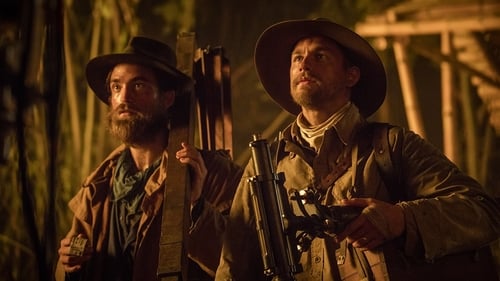
20世紀初頭、アマゾン奥地にあるという黄金の古代都市エル・ドラードの存在を信じる探検家のパーシー・フォーセットは、過酷なジャングルや現地の住民の襲撃など、何度も命を危険にさらしながらも探検を繰り返していた。やがて協力的だった仲間や家族も、彼に愛想を尽かしてしまう。それでもフォーセットはアマゾンに強いこだわりを見せ…。
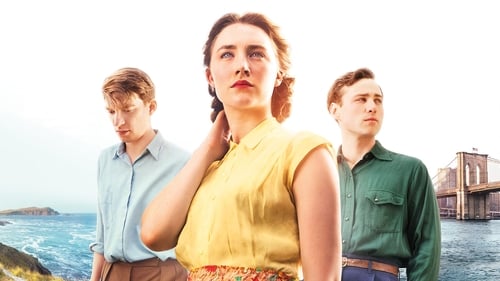
アイルランドの小さな町で、厳格な母親、憧れの姉とともに暮らすエイリシュ。町の食料品店で意地悪な女性店主にこき使われ、息苦しい毎日を送っていた彼女は、優しい姉の力添えを得て、単身アメリカのNYへと渡り、新たな生活をスタートすることに。当初は異郷での生活になかなかなじめず、ホームシックを募らせるエイリシュだったが、やがてダンスパーティーで知り合ったトニーという恋人もでき、明るさと元気を取り戻していく。
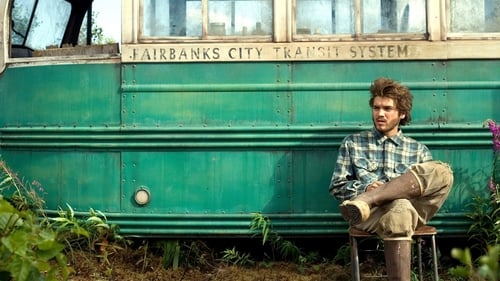
クリスのアラスカでの生活と、アラスカに至るまでの道中、妹のナレーションが交互に挟まれる構成である。 裕福な家庭に生まれ、物質的に恵まれた環境で育ったクリス・マッキャンドレスは、エモリー大学を優秀な成績で卒業する。両親はハーバードのロースクールに進学することを望んでいたが、幼い頃から不和を見せつけられ、金で物ばかりを与えようとする両親に嫌気が差していたクリスは、学資預金を全額寄付し、世界の真理を求めアラスカへと旅に出る。
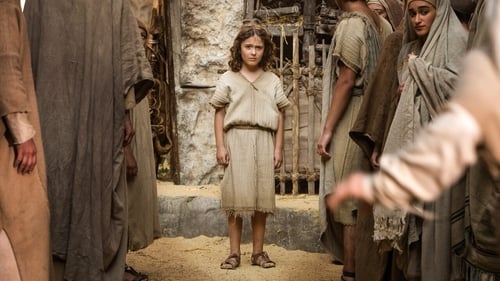
Tells the story of Jesus Christ at age seven as he and his family depart Egypt to return home to Nazareth. Told from his childhood perspective, it follows young Jesus as he grows into his religious identity.
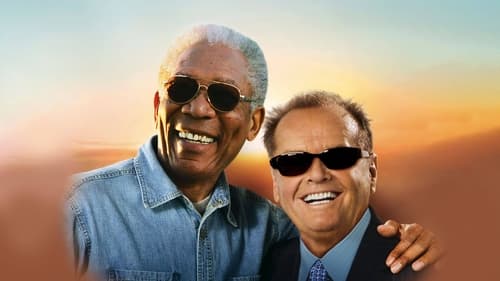
仕事に人生をささげた大富豪エドワード(ジャック・ニコルソン)と、家族のために地道に働いてきたカーター(モーガン・フリーマン)は、入院先の病室で知りあった。共に余命は6か月。やりたいことをすべてやり尽くそうと決意し、無謀にも病院を脱出。“やりたいことリスト”を手に、さまざまなことに挑戦する。
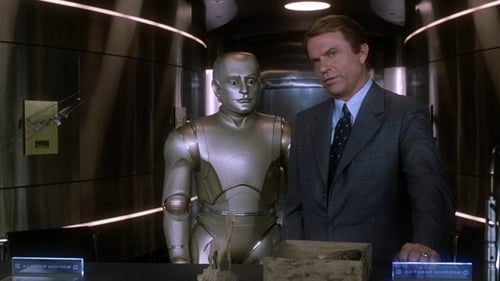
近未来。郊外に住むマーティン家は家事用ロボット、NDR114号を購入した。アンドリューと名付けられた彼は、幼いリトル・ミスと友達になり、彼女から人間について学んだ。やがてリトル・ミスは成長し、結婚して子供も生まれたが、アンドリューとの交流は続いていた。いつしか人間のようになりたいと願うようになっていたアンドリューは自由を求めて旅に出た。そして、友人となった発明家のルパートからロボットが人間に近づける可能性を知った。かくしてアンドリューは大切な人となっていたリトル・ミスの孫娘ポーシャと同じように生きたいという切ない想いから、人間になる決心をするのだった。
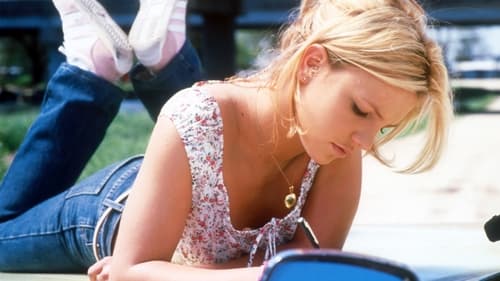
After eight years apart, three childhood friends - Lucy, Kit, and Mimi - rediscover their friendship on a cross-country trip. With barely a plan, practically no money but plenty of dreams, the girls catch a lift with Mimi's handsome friend Ben in his convertible. Along the way they not only gather experiences that will change their lives, but they also discover how important it is to hold onto their hearts' desires.

Ana meets Rafa in a chance encounter and they embark on a road trip to try and save him from bankruptcy, or worse.
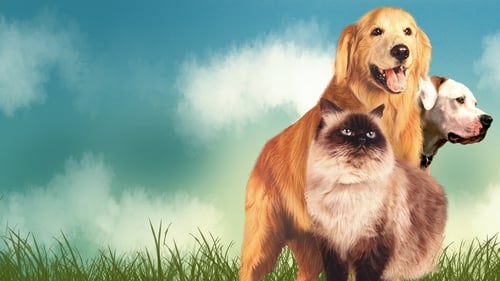
Remake of the popular Disney classic, this time featuring some well known voices as two dogs and a cat trek across America encountering all sorts of adventures in the quest to be reunited with their owners.
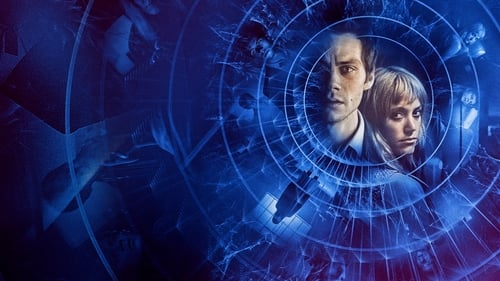
Frederick Fitzell is living his best life—until he starts having horrific visions of Cindy, a girl who vanished in high school. After reaching out to old friends with whom he used to take a mystery drug called Mercury, Fredrick realizes the only way to stop the visions lies deep within his own memories, so he embarks on a terrifying mental odyssey to learn the truth.
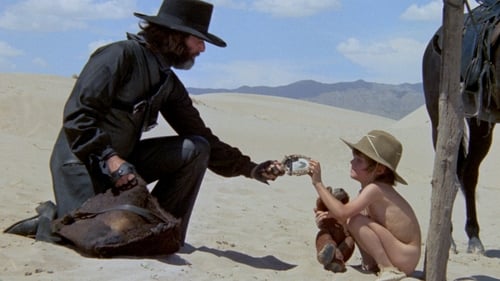
El Topo decides to confront warrior Masters on a trans-formative desert journey he begins with his 6 year old son, who must bury his childhood totems to become a man.
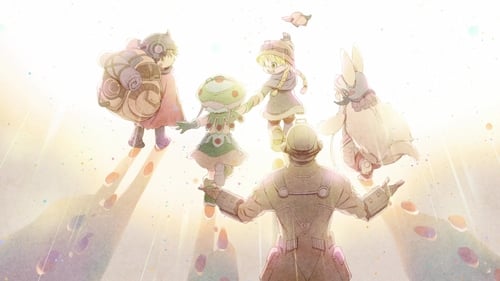
隅々まで探索されつくした世界に、唯一残された秘境の大穴『アビス』。どこまで続くとも知れない深く巨大なその縦穴には、奇妙奇怪な生物たちが生息し、今の人類では作りえない貴重な遺物が眠っている。「アビス」の不可思議に満ちた姿は人々を魅了し、冒険へと駆り立てた。そうして幾度も大穴に挑戦する冒険者たちは、次第に『探窟家』と呼ばれるようになっていった。アビスの縁に築かれた街『オース』に暮らす孤児のリコは、いつか母のような偉大な探窟家になり、アビスの謎を解き明かすことを夢見ていた。ある日、母・ライザの白笛が発見されたことをきっかけに、アビスの奥深くへ潜ることを決意するリコ。リコに拾われた記憶喪失のロボット・レグも自分の記憶を探しに一緒に行くことを決意する。深界四層でタマウガチの毒に苦しむリコ。リコを救ったのは成れ果てのナナチだった。ナナチを仲間に加え、ボンドルドの待つ深界五層へと三人は冒険を進める。そこで、プルシュカと名乗る女の子に出会い…
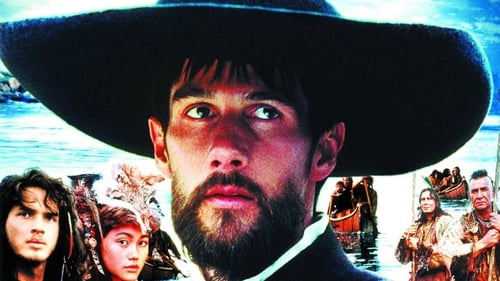
Missionary Father LaForgue travels to the New World in hopes of converting Algonquin Indians to Catholicism. Accepted, though warily, by the Indians, LaForgue travels with the Indians using his strict Catholic rules and ideals to try and impose his religion.

On Halloween 1997, two estranged teen skaters embark on a surreal journey through their memories, dreams and fears.
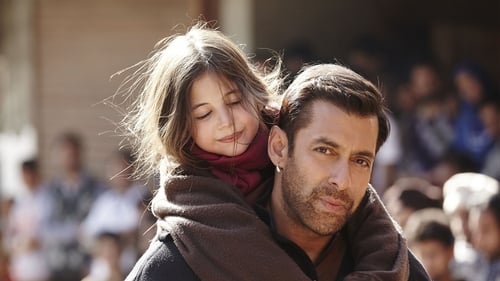
パキスタンの小さな村に住む女の子シャヒーダー。幼い頃から声が出せない障害を持った彼女を心配したお母さんと一緒に、インドのイスラム寺院に願掛けに行くが、帰り道で一人インドに取り残されてしまう。そんなシャヒーダーが出会ったのは、ヒンドゥー教のハヌマーン神の熱烈な信者のパワンだった。バカがつくぐらいの正直者で、お人好しなパワンは、これも、ハヌマーンの思し召しと、母親とはぐれたシャヒーダーを預かることにしたが、ある日、彼女がパキスタンのイスラム教徒と分かって驚愕する。歴史、宗教、経済など様々な部分で激しく対立するインドとパキスタン。 それでもパスポートもビザもなしに、国境を越えてシャヒーダーを家に送り届けることを決意したパワンの旅が始まった。果たしてパワンは無事にシャヒーダーを母親の元へ送り届けることができるのか!?

When the warren belonging to a community of rabbits is threatened, a brave group led by Fiver, Bigwig, Blackberry and Hazel leave their homeland in a search of a safe new haven.
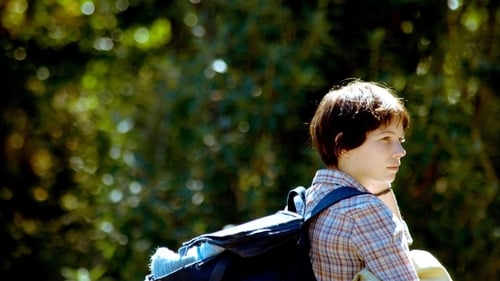
Wendy, a near-penniless drifter, is traveling to Alaska in search of work, and her only companion is her dog, Lucy. Already perilously close to losing everything, Wendy hits a bigger bump in the road when her old car breaks down and she is arrested for shoplifting dog food. When she posts bail and returns to retrieve Lucy, she finds that the dog is gone, prompting a frantic search for her pet.
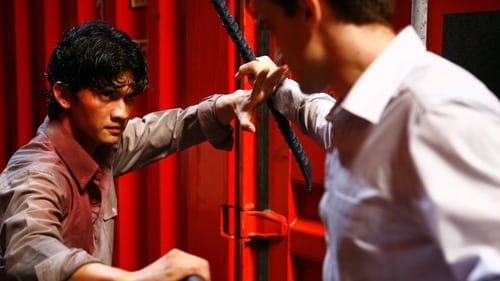
In Minangkabau, West Sumatera, Yuda a skilled practitioner of Silat Harimau is in the final preparations to begin his "Merantau" a century's old rites-of-passage to be carried out by the community's young men that will see him leave the comforts of his idyllic farming village and make a name for himself in the bustling city of Jakarta.
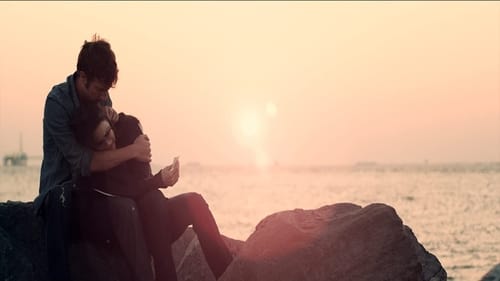
OCTOBER BABY is the coming of age story of a beautiful and naive college freshman who discovers that her entire life is a lie and sets out on a road trip with a host of misfits to discover herself and the answers she craves.

2500年前のインド・シャカ国。世界の王となると予言された王子、ゴータマ・シッダールタが生まれる。幼いころから厳しい階級社会に疑問を抱いていたシッダールタは、敵国コーサラ国の勇者、チャプラに出会う。最下層の身分から頂点を目指すチャプラと高貴なシッダールタの運命は、そのとき変化しようとしていた。

Vicente (Gabino Rodríguez) is a young farmer in a rural village who scrapes by while taking care of his ill grandmother. Several of Vicente’s uncles intend to their ailing mother’s land without her knowledge. Vicente seeks help from the municipal president who, between shooting hoops on a desolate court, tells him that if he wants justice, he must head to the capital to meet with government officials. Although he hasn’t seen her since he was a child, Vicente sets off in search of his mother, who works as a maid in maze-like Mexico City. With the help of his mother’s employer, a sophisticated middle-aged woman, he finds the government offices where he presents his case. His situation isn’t easily resolved, especially since he does not have the deed to his grandmother’s plot of land, and Vicente finds the complexities of the legal system to be completely overwhelming.

The lives of two women intersect.
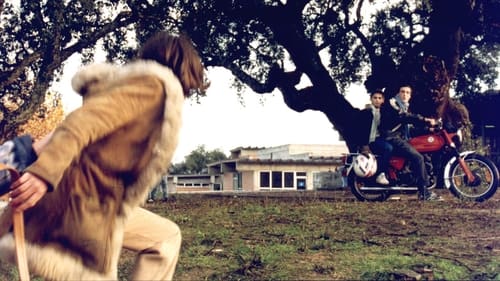
Gloria is set against the backdrop of a rural landscape slowly disappearing in modern Portugal. The small border town of Vila de Santiago, once a booming trade center for illegal trafficking, is about to become a ghost town, as a new motorway is to bypass the city and the railway station is being closed. Its stationmaster, Vincente, is preparing to retire. Many young people have moved out, leaving the children to be brought up by the elderly, including thirteen-year-old Glória and her friend Ivan. Glória's life suddenly changes with the arrival of Vincente's younger brother, Mauro, who has just come out of prison and has some old issues to settle. Mauro begins to charge around the station on his motorbike, while Glória's friendship with Ivan is put to test on account of her attraction to older Mauro.

Caleidoscope of documentary-like scenes and re-enacted episodes of a day in the life of a large port town - Lisbon, from the old district around Saint George's Castle down to the docks and the 'Sagres' on the Tagus river, to the new commercial districts.

Following international recognition of Fado, Portugal recently submitted to UNESCO the polyphonic songs of the Alentejo, known as Cante Alentejano, or just Cante, as an Intangible Cultural Heritage of Humanity. This film will be a journey into the hot Alentejo countryside (Southern region of Portugal) discovering Cante music and the life of its performers. Not many people outside Portugal know about these a capella polyphonic choirs, typically formed by 20 to 30 male agricultural workers or miners, that seem to express the deep voice of the Earth.
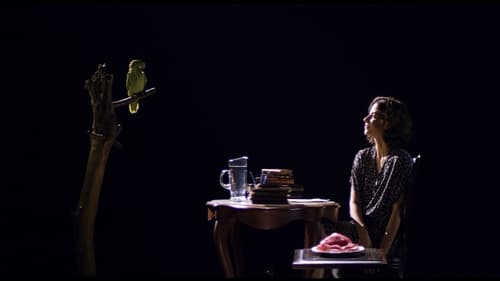
A delicate and tenacious writer, widowed three years ago, engages in frequent conversations with a parrot. However, she’s always observed by a large portion of raw meat.

Essay film about the history of documentary films.

A silent short, focusing on the beauty and melancholia of seeing horses in the cold fog, and the metaphors that manifest, as time passes.

The film is set in Lisbon, and tells the story of a day in the life of Rita and Paulo, a Portuguese young couple of the 90's. The fast changing city around them makes them wish to break with all traditions and live the day the get married (only civil marriage) like it is an ordinary day.
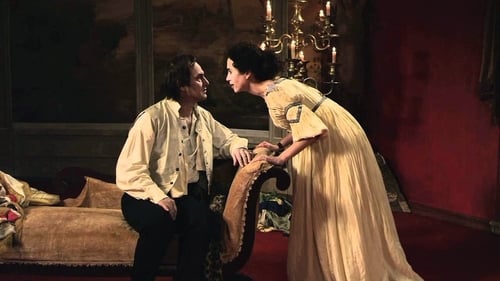
Roberto is one of those men to whom simulation has become the greatest art. He is an unmoved, inscrutable, mysterious man. But the truth is that Robert feels an intimate, deep tedium. The boredom of those who have already exhausted all the pleasures of life. The only thing still surprising him is the fact that nothing surprises him anymore. One evening he has an overwhelming encounter with a woman. For his own bewilderment, he discovers the sublime horrors in which the woman has sank.
![2+2=22 [The Alphabet]](https://moviedb.kr/index.php/image/w500/5hxLZe2Wm0kN2x4oOEHEJoQtJij.jpg)
Worn-down pavements, broken paving stones. Trees that jut out of the concrete, casting shadows on to crumbling façades. The centre of Tbilisi in the summer of 2013. Glimpses of side and main streets, over railings and under balconies, of an architectural cacophony. The voiceover spoken by Natja Brunckhorst reflects on the nature of streets and public spaces.

Heinz Emigholz, the premiere purveyor of architectural oddities (Sullivan's Bridges, Goff in the Desert), meticulously documents 15 rooms of the enormous Villa Cargnacco in Lombardy, Italy, designed by proto-fascist poet Gabriele D'Annunzio (1863-1938). The controversial figure spent 17 years designing the Vittoriale, a state museum on Lake Garda, and furnishing the Villa Cargnacco, which is part of the grand complex. This unusual documentary resulted from a photography session in the villa, when four friends--cinematographers Irene von Alberti, Elfi Mikesch, Klaus Wyborny and Heinz Emigholz--simultaneously filmed the rooms and furnishings of the villa in their own specific styles.

A West African pig farmer has a religious vision, wherein he is told that he'll be Magloire the First, a prophet of Christ. He then sets out to rid his local villagers of superstition and instead save them for Jesus.

This film tries to make a silent record of the arrival of an economy of scale, its flows, and its effects upon the transformation of an island’s physical and human landscape.
![Bickels [Socialism]](/assets/images/no-backdrop.png)
The ‘Casa do Povo’ cultural centre in São Paulo, an icon of the secular Jewish workers’ movement: a crumbling theatre flanked by staircases, entryways and corridors. Construction noise drones away in the background, clinking crockery, a broom sweeping over tiled floors, an expressive façade of countless adjustable panes of glass covered by a patina. It’s October 2016 and a group of young people are preparing a preview of Bickels [Socialism]. The venue is to form a prologue to the completed film, which tours 22 buildings in Israel designed by Samuel Bickels, most of which for kibbutzim. Dining halls, children’s houses, agricultural buildings, bright structures inserted into the Mediterranean landscape with great ingenuity. An architecture with a sell-by date: That many are now empty or have been repurposed at best is linked to the decline of the socialist ideals they embody.
![Streetscapes [Dialogue]](https://moviedb.kr/index.php/image/w500/2K1nI3Uz37m9o6GbxIIj6FJPb5y.jpg)
A film director confides in his interlocutor. He talks about the working process, about creative blocks, about artistic crises and expressive forces. At some point, the idea takes hold that this conversation could be turned into a film. And this is the very film we’re watching the two of them in.

Minotaur takes place in a home of books, of readers, of artists. It’s also a home of soft light, of eternal afternoons, of sleepiness, of dreams. The home is impermeable to the world. Mexico is on fire, but the characters of Minotaur sleep soundly.

Gabino, Luisa and Paco share a small apartment in Mexico City. With no money and nothing to do they decice to leave the city.

Through a series of interviews and enactments we learn the story of Nico and Amalio, two children who lost a friend while climbing a mountain. Documentary and fiction seamlessly merge creating a hybrid, poetic film.

"[...] Looking back, I now feel that I understand that the film was my response to the two entities, Man and Nature competing for space in the local vicinity where I lived, ergo layers of images and sounds compete for attention in the film. Where fields used to be, they were being replaced with factories, power stations, and wind farms. My film is an irresolution. Are any of these things beneficial enough to be warranted? Isn't it all a folly? I don't know. It is not a negative film, nor a positive one. Just a comment. A comment that my subconscious commanded me to make; inspired by the locations that I passed... and the locations that have passed. At the end of the film, a human hand reaches out, as if trying to find a resolution, a reason for anything and everything - but everything, even the nature seems so fake now, like trying to feel the flesh of a mere projection..." - Scott Barley



























![2+2=22 [The Alphabet]](https://moviedb.kr/index.php/image/w500/5hxLZe2Wm0kN2x4oOEHEJoQtJij.jpg)
![Streetscapes [Dialogue]](https://moviedb.kr/index.php/image/w500/2K1nI3Uz37m9o6GbxIIj6FJPb5y.jpg)